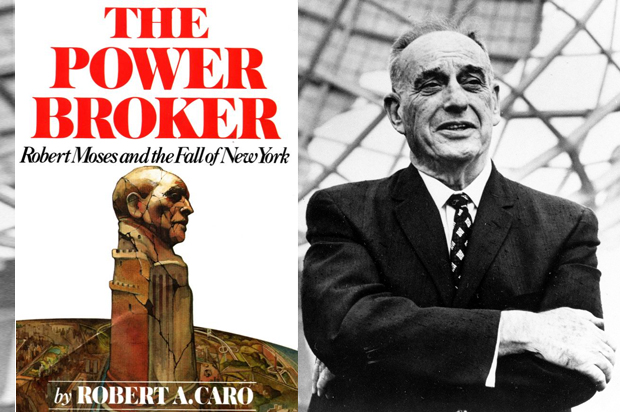Elon Musk and the Environment
Many New Yorkers know Robert Moses from Robert Caro’s book The Power Broker: Robert Moses and the Fall of New York, which won every award it could. At over 1,000 oversized pages, I thought I’d browse it at first, but couldn’t put it down.

Robert Moses may have shaped New York City more than any other person, holding multiple offices from the 1920s to the 80s. Residents loved him early in his career when most knew him for creating public parks and reforming crony, corrupt government. Not many drove then and traffic congestion barely existed so people appreciated that he built new roads.
It made sense as highways grew to think a road becoming congested meant that demand exceeded and conclude that adding another lane or road would meet that demand. Today we know that adding roads leads people to adjust and take advantage of uncongested roads. We move, buy more cars, take more trips, and so on until we reattain a level of congestion worth complaining about. In other words, traffic congestion is often an arch problem, where building new roads is like supporting the arch from below. Eventually you reach the road version of “the bureaucracy expanding to meet the needs of the expanding bureaucracyâ€â€”no longer serving people. Increasing roads also brought pollution, split communities, and distanced people.
For decades after people recognized this pattern, Robert Moses held enough political power to keep building roads. His public image suffered. Eventually the public stopped him from building a parking lot in Central Park and highways that would gut Little Italy, Soho, and Greenwich Village. If his original intent had been to serve the public, he had crossed a line to mindless growth and dated ideas whose counterproductive unintended side-effects dwarfed the intended effects.
Elon Musk is today’s Robert Moses. Reversing our environmental course means fewer cars, though electric when not reducible. Musk is promoting more cars. He is pursuing growth primarily—more cars, like Moses promoted more roads. His purported solution increases the problem, creating more perception of ruinous demand, though not among those who see the systemic problem he’s exacerbating.
Likewise, most Silicon Valley, Hollywood, and corporate initiatives promote growth first, often including self-aggrandizement for founders and ignoring unintended side-effects, that amount to stepping on the gas, thinking it’s the brake, and wanting congratulations.
A Greenwich Village resident, Jane Jacobs, came to personify the movement who saw that Moses was serving himself, ignoring his work’s actual effects, not his intent. Her book, The Death and Life of Great American Cities, focused on people, what made communities livable and desirable, and how highways in cities did the opposite. Maybe you or I will become her equivalent.
Meanwhile, The Power Broker recounted Moses’s life and career, revealing his drive for growth, power, self-aggrandizement, and contempt for the people he pretended to serve, belying his claims of modesty and service. An enduring legacy results from personal integrity. Moses saw his crumble, as DiCaprio and Gore are seeing theirs, as will Musk if he continues in Moses’s erroneous path to grandeur.
Read my weekly newsletter

On initiative, leadership, the environment, and burpees
Pingback: Bill Gates and environmental leadership, part 2: His Addiction Speaking » Joshua Spodek